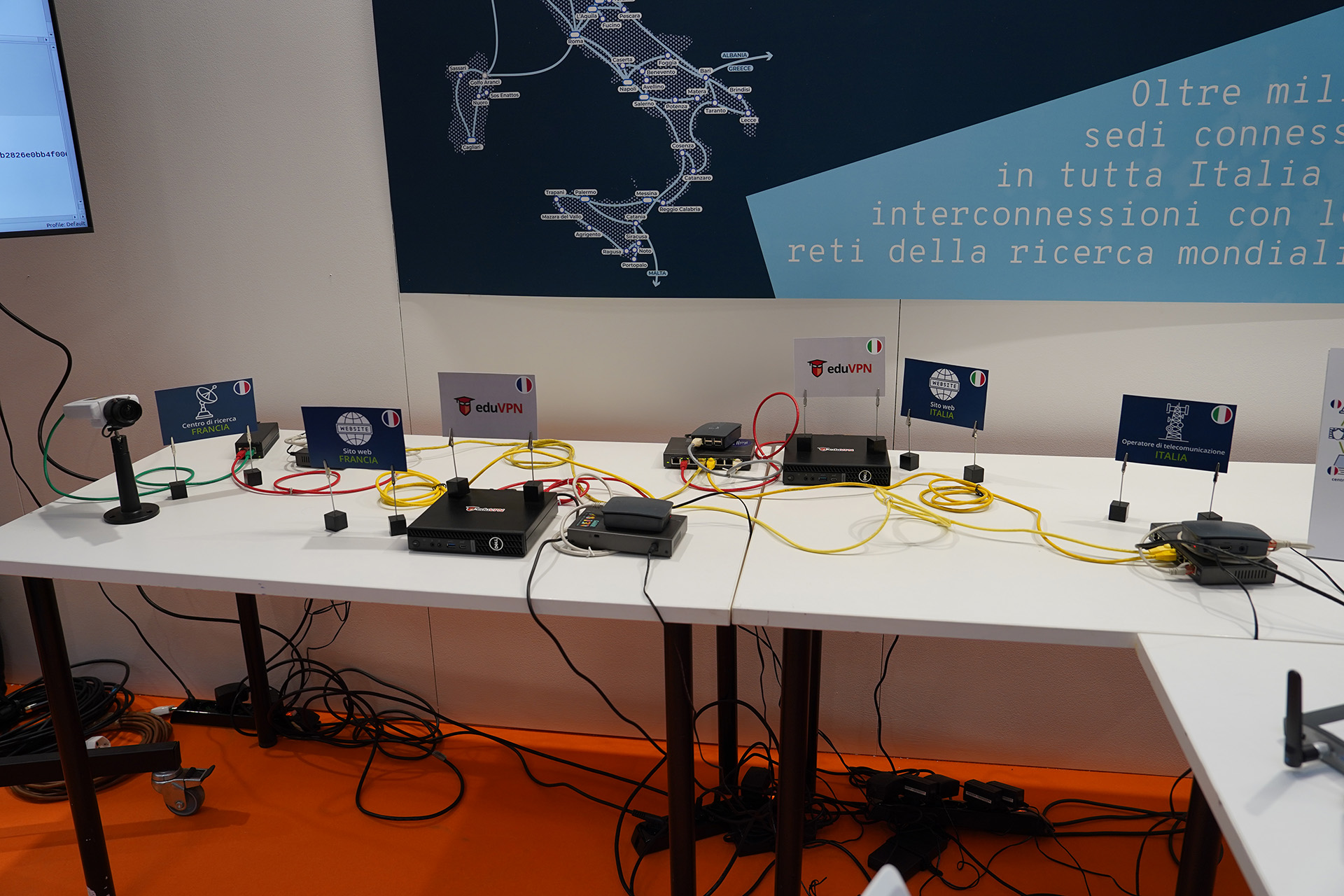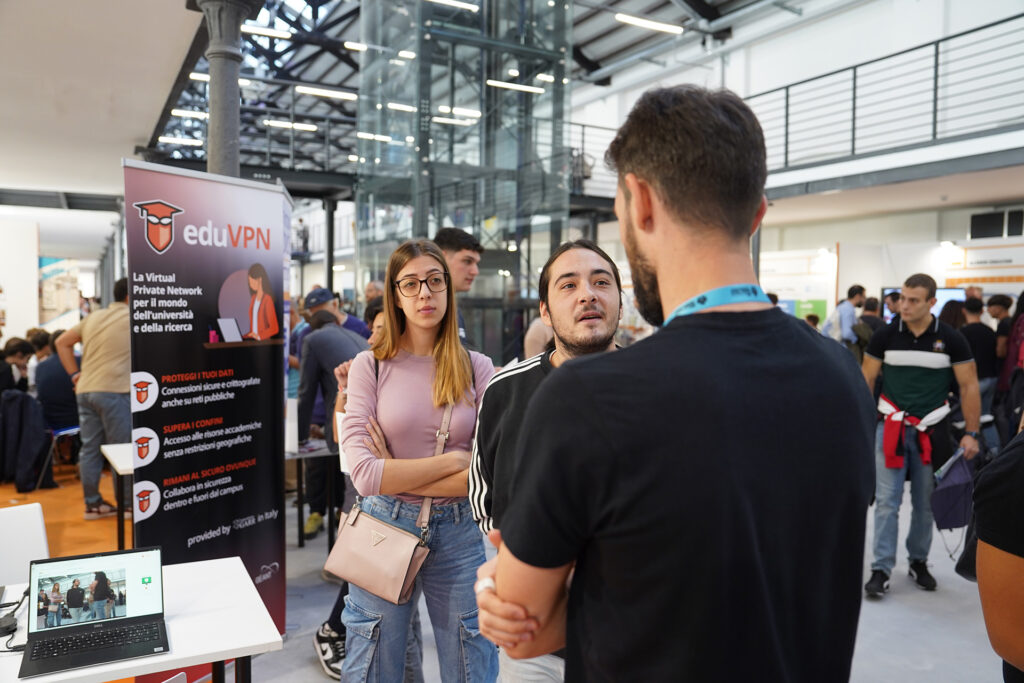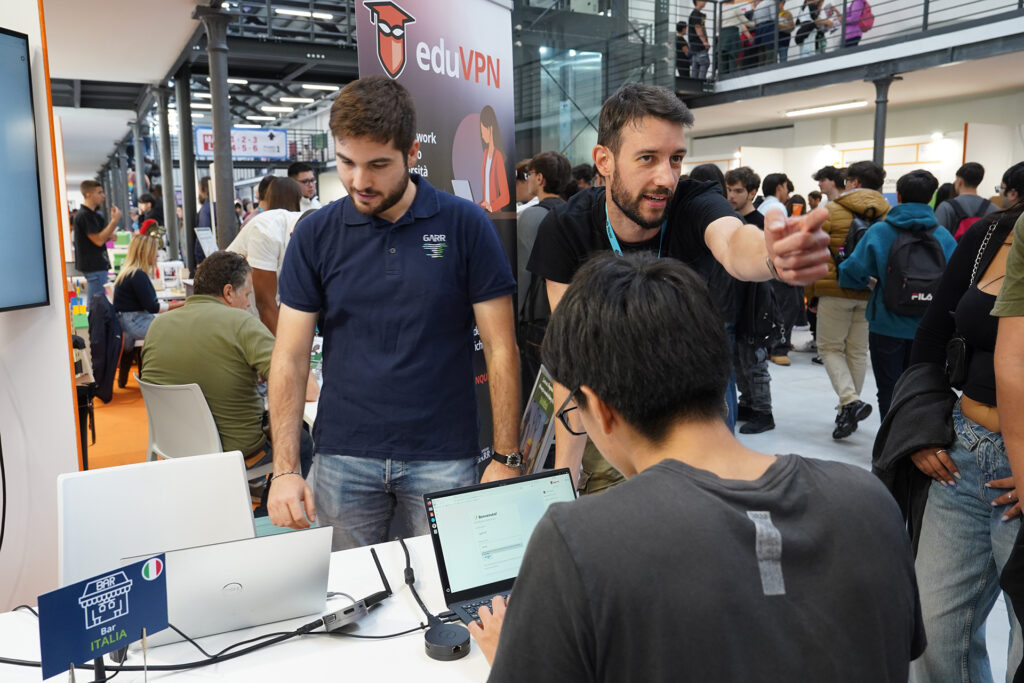In October 2025, the Italian research and education network GARR used Maker Faire Rome, the European edition of the worldwide maker event, as a platform to raise awareness about cybersecurity and promote eduVPN within the research and education community.
The initiative aimed to make complex security concepts understandable to a broad audience and to highlight how eduVPN can protect the academic community when accessing networks from any location.
An interactive approach
Maker Faire Rome is the leading European event for innovation, where academic institutions, research centres, companies, and creatives come together to explore the technologies of the future. From 17 to 19 October, GARR hosted an interactive exhibition stand at the Gazometro in Rome-Ostiense. Its team of experts guided visitors through a hands-on experience with a miniature internet network that demonstrated how a Virtual Private Network (VPN) works. This practical setup helped participants grasp the principles of secure connections and encryption in a direct and engaging way.

Visitors — including students, researchers, educators and technology enthusiasts — explored realistic scenarios such as logging into unprotected websites, transmitting sensitive data and accessing international scientific infrastructures including radio telescopes, databases and digital libraries. Simulations of hacker attacks showed the vulnerabilities of public networks and underlined the importance of protecting online communications. Other interactive demonstrations illustrated how secure geolocation management can support international research collaboration.
Highlighting eduVPN
A central element of the activity was eduVPN, the international service developed by the research and education networking community and operated in Italy by GARR.
By showing how eduVPN encrypts traffic and protects users on public networks such as those in airports, hotels and libraries, GARR highlighted its value as a trusted solution for the academic and research environment.


The initiative also reinforced the role of GARR as a strategic cybersecurity and connectivity partner for the Italian national research and education system.
Lessons learned and impact
The event demonstrated that complex concepts such as data protection, encryption and secure network access can be effectively communicated through interactive experiences. By creating a tangible and memorable encounter, GARR succeeded in turning a technical topic into something accessible and relevant to a broad audience.
The experience also showed how large-scale public events can be an effective way to increase the visibility of trust-based services like eduVPN and extend their reach beyond traditional academic communication channels.

The Maker Faire Rome initiative proved that cybersecurity awareness can be fostered through clear communication, interactive learning and strong community engagement.
It offered a replicable model for promoting secure digital tools and services across the research and education landscape, demonstrating how national networks can build trust and empower their communities through innovative outreach strategies.
About eduVPN
eduVPN is a highly secure and open-source VPN solution built by and for the research and education community. Having started in 2015 as a project at the Dutch research and education network SURF, eduVPN is currently a program under the Commons Conservancy, a non-for-profit foundation focusing on free and open source projects. It is also part of the GÉANT project (GN5-2), co-funded by the European Union, and has received funding from the Vietsch Foundation, RIPE, NORDUnet, NGI trust and the NLnet Foundation.


